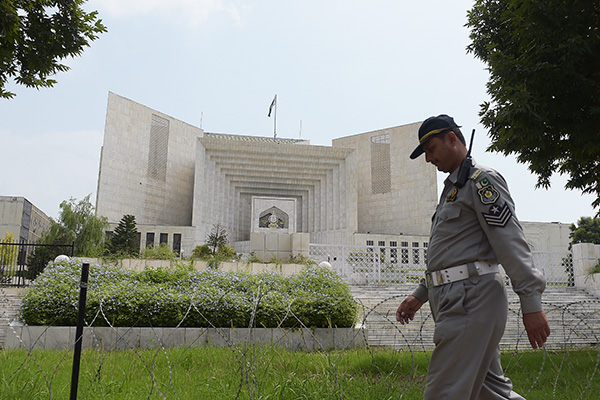
Aamir Qureshi—AFP
Mentally ill man was set to be executed on Nov. 2 after court declared schizophrenia ‘recoverable disease.’
The Supreme Court on Monday issued a last minute reprieve to a mentally ill man set to face the gallows this week, after his lawyers challenged the ruling using the last legal maneuver available to them.
Lawyers and rights groups say convicted murderer Imdad Ali, who was diagnosed with schizophrenia while in prison in 2012, cannot be executed as he cannot understand his crime and punishment. He was previously set to be executed on Nov. 2 following a ruling by the Supreme Court that said schizophrenia was a “recoverable disease” that could be treated by drugs, and not a mental disorder.
The fresh legal challenge will now be heard in the second week of November, the Justice Project Pakistan (JPP), which is providing counsel for Ali, said in a statement. The government of the Punjab province, where Ali was convicted, is also seeking to overturn the conviction, the group added.
Sentenced to death in 2001 over a shooting, Ali has spent 14 years on death row, with three years in solitary confinement in the jail’s hospital because of his schizophrenia. A 2013 government medical report stated Ali was “insane,” while reports from September and October this year said he was psychotic and a psychiatrist deemed him “a treatment-resistant case.”
The stay of execution also comes days after European Union politicians warned that Pakistan’s preferential trade status with the bloc could be under threat from its executions drive.
Since lifting its moratorium on executions in December 2014, Pakistan has hanged over 418 prisoners, overtaking Saudi Arabia to become the world’s third largest executing nation after China and Iran. But according to a report by British charity Reprieve, 94 percent of the executions have been for non-terrorism offenses, despite the government’s claim that capital punishment was reinstated to combat Islamist militancy.
Officials from the E.U. who oversee Pakistan’s special trade status, that lets around 20 percent of Pakistani exports enter the trading bloc at zero tariff, are set to visit the country from Monday to assess whether the government has honored its obligations under the scheme, which include abiding by certain human rights standards.
